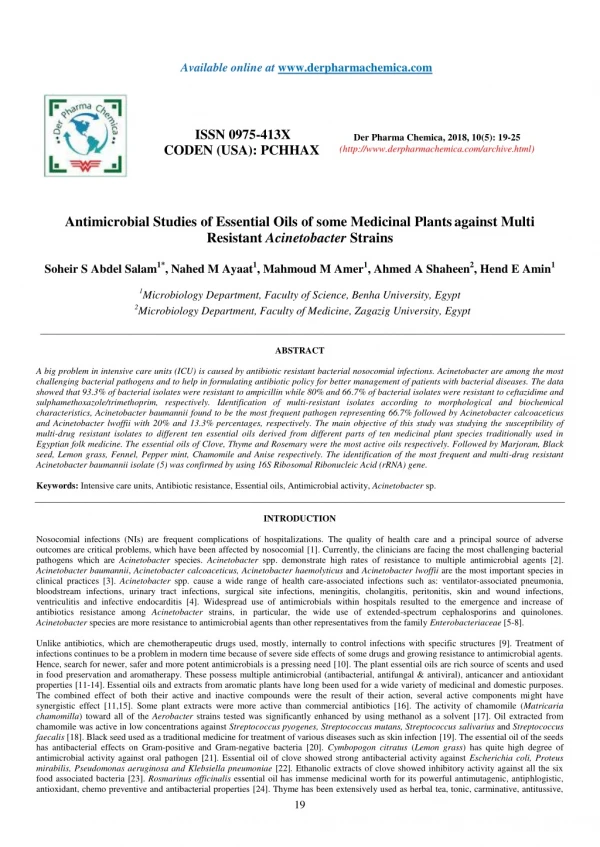Antimicrobial Studies of Essential Oils of some Medicinal Plants against Multi Resistant Acinetobacter Strains
A big problem in intensive care units (ICU) is caused by antibiotic resistant bacterial nosocomial infections. Acinetobacter are among the most challenging bacterial pathogens and to help in formulating antibiotic policy for better management of patients with bacterial diseases. The data showed that 93.3% of bacterial isolates were resistant to ampicillin while 80% and 66.7% of bacterial isolates were resistant to ceftazidime and sulphamethoxazole/trimethoprim, respectively. Identification of multi-resistant isolates according to morphological and biochemical characteristics, Acinetobacter baumannii found to be the most frequent pathogen representing 66.7% followed by Acinetobacter calcoaceticus and Acinetobacter lwoffii with 20% and 13.3% percentages, respectively. The main objective of this study was studying the susceptibility of multi-drug resistant isolates to different ten essential oils derived from different parts of ten medicinal plant species traditionally used in Egyptian folk medicine. The essential oils of Clove, Thyme and Rosemary were the most active oils respectively. Followed by Marjoram, Black seed, Lemon grass, Fennel, Pepper mint, Chamomile and Anise respectively. The identification of the most frequent and multi-drug resistant Acinetobacter baumannii isolate (5) was confirmed by using 16S Ribosomal Ribonucleic Acid (rRNA) gene.
★
★
★
★
★
83 views • 7 slides
